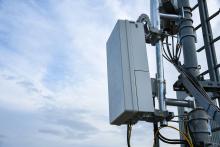To deliver the optimal user experience, the plethora of specialty players in today's hotspot market must find a level of cooperation that includes adherence to a common set of technical and implementation standards and, in some cases, significant trade-offs between ideals and pragmatic solutions. The most publicized effort was advanced in February by the Wi-Fi Alliance's WISPr working group, written by representatives of Gemtek (a wireless infrastructure provider), iPass (an aggregator) and Nomadix (a hotspot-gateway provider). Rather than designing a sophisticated set of roaming standards, WISPr is working within the context of existing standards to define best practices for hotspot networks. Most of the vendors that participated in our RFI have pledged support for WISPr.
|
By The Numbers
31m: Number of frequent users of public WLAN hotspots worldwide by 2007
35m: Number of infrequent users
120k: Number of WLAN hotspot gateways by 2007
9b: Revenue from WLAN hotspot users by 2007
Source: Gartner
|
From a technical standpoint, WISPr calls for using a combination of HTTP, SSL and RADIUS to provide secure authentication, authorization and accounting services. Although participants must follow some implementation standards, others are just recommended or optional. For example, while providers are required to offer Web authentication services, they have the option to use so-called smart clients that add functionality like enhanced security, service browsing and hotspot directories and can make access more transparent to users.
Although the transmission of authentication credentials is protected by SSL encryption, WISPr-compliant systems do not provide privacy services. Instead, WISPr encourages the use of VPN clients for secure connections. That's a prudent compromise in the absence of workable alternatives, but the WISPr group clearly envisions a day when support for the IEEE's 802.1x standard will overcome those limitations, serving as both an authentication protocol and as a vehicle for managing dynamic session keys. WISPr provides a clear explanation about how 802.1x will be integrated into the system, including explicit support for TLS and TTLS authentication types (see "The New Face of Authentication", and "802.1x Explored").
There are serious questions about whether either of those authentication types will win out in the market, but one can hardly expect WISPr to solve that problem. In any case, the system is flexible enough to support whatever standard eventually emerges.
Dave Molta is a senior technology editor at Network Computing. He is also an assistant professor in the School of Information Studies at Syracuse University and director of the Center for Emerging Network Technologies. Molta's experience includes 15 years in IT and network management. Write to him at [email protected].
Post a comment or question on this story.
Sure, providing users with untethered Internet and e-mail access while they sip caramel macchiatos (no foam) will enhance your popularity, but that's just a happy by-product of hotspot technology: Visitors to your physical locations will appreciate how easy it is to check in with their offices, and mobile employees will likely see productivity increases.








